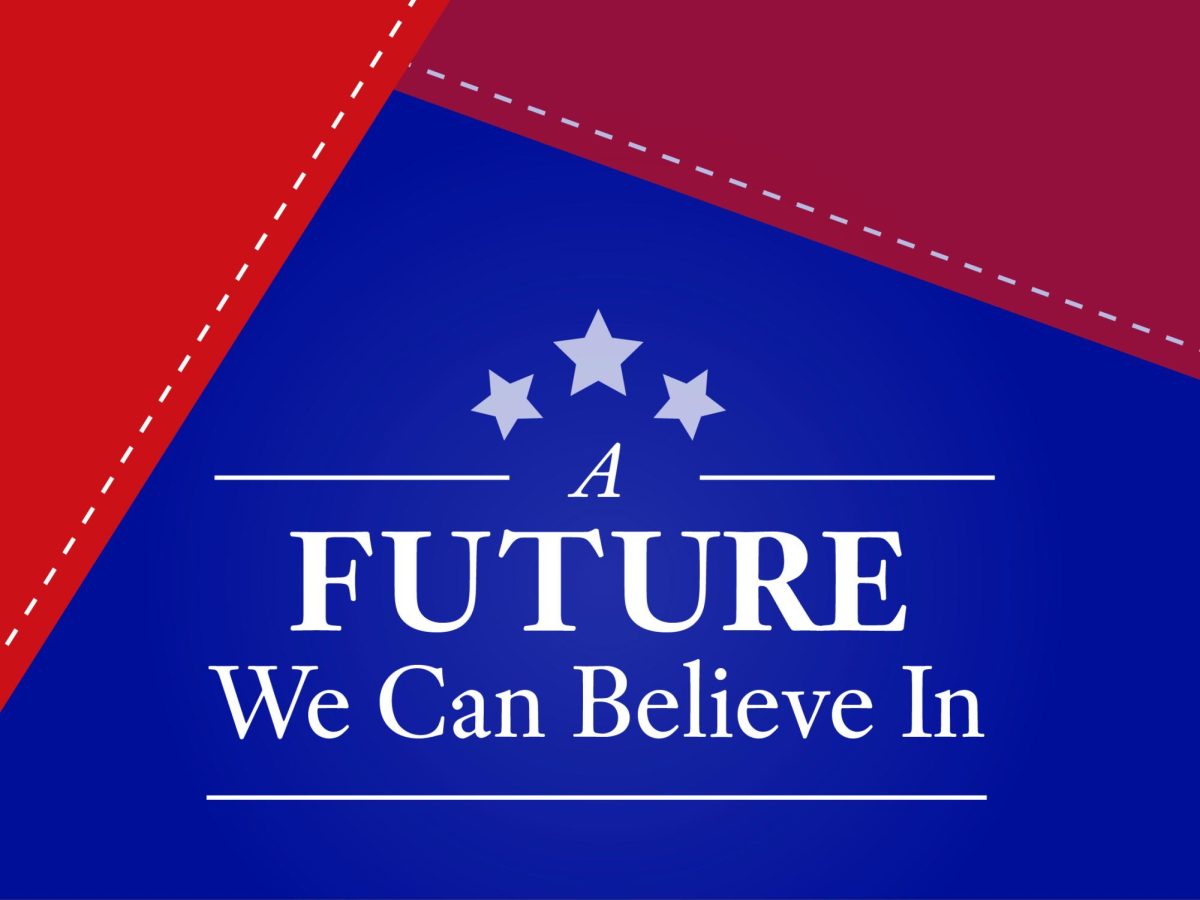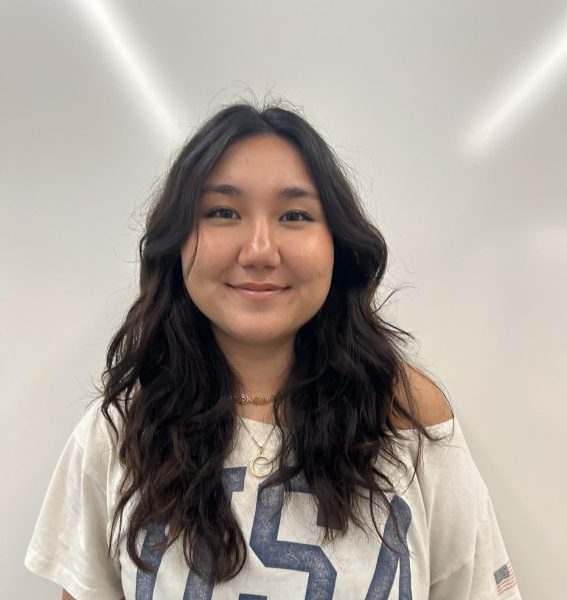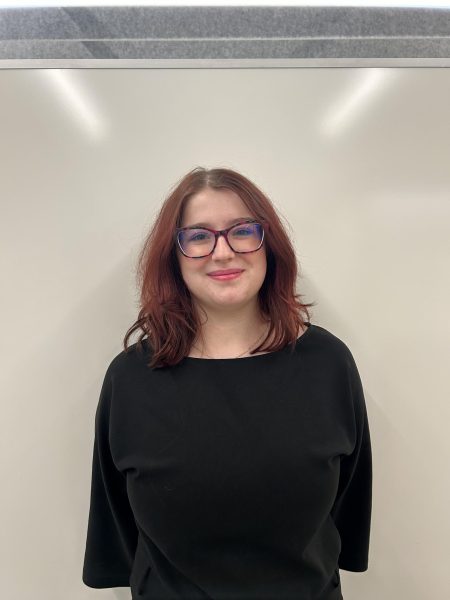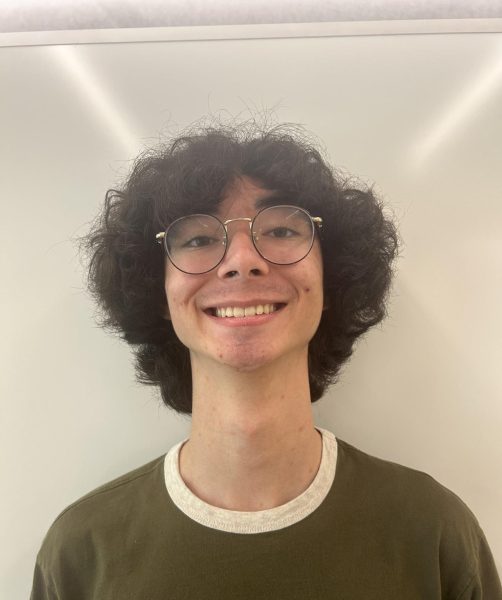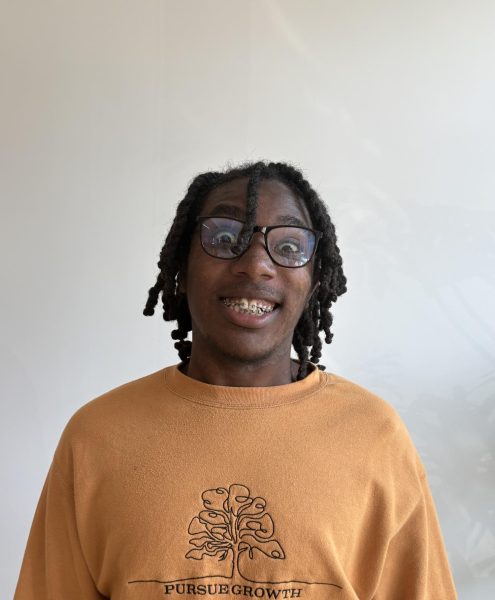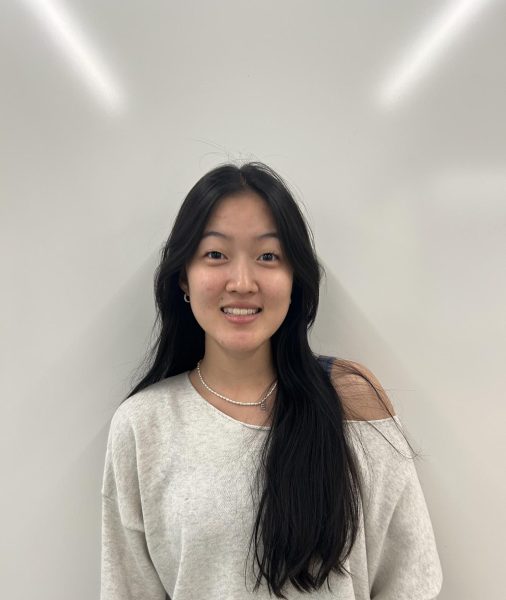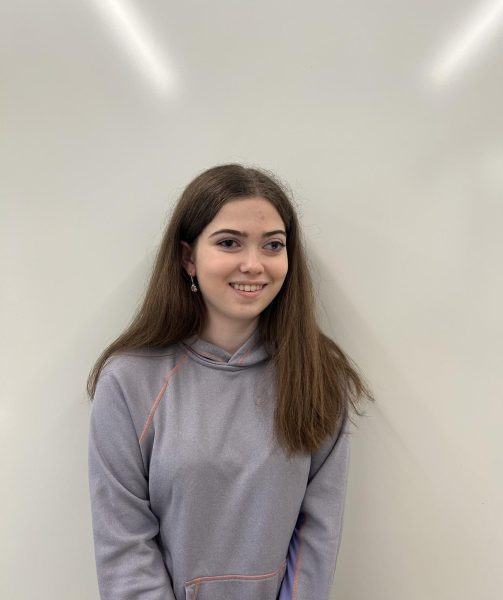With the upcoming election rapidly approaching, excitement and anticipation are mounting.
Guiding the Ballot
With this year’s election fast approaching, many of the current seniors will be eligible to vote in it. However, young voters are a small percentage of the overall polls, much to AP U.S. Government and Politics teacher Kim Thompson’s dismay.
“Young people’s needs are significantly less represented in policymaking,” she said. “Policymakers are trying to play for their voters, and their voters aren’t young people.”
As a teacher of AP Gov, Thompson makes an effort to educate and encourage her students about voting, especially now that her current class has the ability to vote.
“One thing we talk about a lot is how to have your voice heard when you only have two choices,” she said. “It’s a lot more complicated than two parties. There’s 300 million people in the country — that’s 300 million ways to think about stuff, and yet somehow we’re reduced to two choices [on the] ballot box.”
Thompson feels especially strong about voter participation, given that registering is “so easy now. You can do it online.”
However, many students feel as if their vote doesn’t matter, and that due to the electoral college, the outcome will be the same whether they vote or not.
“It’s a self-fulfilling prophecy,” Thompson said. “If you think your vote won’t count [and] you don’t show up, what do you know? Your vote doesn’t count because you didn’t make one.”
Thompson agrees electoral college votes can be discouraging, but there are plenty of other issues on the ballot that a student’s vote will be important on.
“Students need to remember the most immediate effective policies are not created by the president,” she said. “The most immediate effects you’re going to feel are at the local level: your mayor, your governor, your state legislature. Those are the [parts] where your vote really will count.”
Thompson makes a concerted effort to encourage her government students to go out and vote this coming election, and to educate them on how an increase in young voters will affect the voting landscape.
“Do you want to have a say in how colleges are funded, how your siblings’ schools are funded and how your roads are taken care of?” she said. “You either get to come along for the ride or be a part of laying the path.”
Cause for Campaign
While many students push politics to the back of their minds, senior Akhil Reddy and junior Noah Everest have taken action and spent time campaigning for their chosen officials.
“I’m really involved in civic engagement and getting people to vote, as well as the city government in general,” Reddy said. “I like getting my voice out there and being able to advocate for them and advocating for what I want to see in Overland Park.”
In his time campaigning for city council candidate Faris Farassati, Reddy’s main focus was broadcasting his views and opinions to local voters.
“Campaigning mainly involved going door to door and canvassing,” Reddy said. “We would put yard signs throughout the city, then toward the end we did some phone banking, so we’d call people who were most likely to vote and encourage them to vote for Faris.”
In his success, Reddy has learned to be cognizant of voters and their time and feelings.
“It primarily involves soft skills, being able to come up with conversations with strangers and not taking it to heart,” he said. “A lot of people will be like, ‘I don’t really care. I don’t want to talk about this,’ so you learn to be empathetic with people. It gets you really good at talking to strangers.”
On the other hand, Everest manages the social media platforms and marketing aspects for Prasanth Reddy, who is campaigning for a seat in the House of Representatives.
“We run the Instagram [and] work on reaching out to people around the school or anyone interested in coming out to parades or rallies,” Everest said. “It’s mostly getting the word out.”
To succeed in these tasks, Everest has learned to establish and develop certain skill sets.
“It requires a lot of social skills,” he said. “You’ve got to be able to talk to people. You have to be able to manage your time well and manage someone else’s time well.”
Not only did it allow Everest to learn and grow in his abilities, campaigning also opened up opportunities for his future.
“Dr. Reddy’s said he’s willing to write resumes and direct letters, and he’s got a lot of connections,” Everest said. “This definitely opens up a lot of college opportunities and a lot more opportunities in politics.”
Reddy has also had doors open thanks to his time campaigning.
“I’ve met a lot of different council members — I’ve connected with them, and we’ve discussed meeting in the future, talking about the future of Overland Park and other things like that,” Reddy said. “It opened a lot of connections.”
In addition to the impacts on their future, Reddy and Everest find their time campaigning rewarding and fulfilling.
“It’s a good investment,” Everest said. “It’s fun to do. It’s easy. He’s just a great guy, and I really enjoy the work.”
Polling Out All the Stops
Politics can be a tricky topic that many people tip-toe around. From the laws that govern us and give us the rights we enjoy to the policies that instill change, politics affect us in many ways regardless of if we’re aware of them.
Yet, somehow, many schools avoid political discussions like the plague because they’re deemed too controversial or cause discord. Considering how the presidential election is around the corner, is avoiding these political conversations harmful?
Senior Everett Davis believes politics should be discussed in school because it fosters critical thinking skills and understanding of opposing views.
“It’s really important that the students here, the people of the future, should have a pretty good understanding of what the political world looks like,” Davis said. “That way when they grow up, they are able to influence it.”
Davis agrees that politics is a difficult topic. However, he feels it is necessary to inform the youth about ongoing political situations, so they can develop their own opinions.
“It makes me worried that 20 years in the future when everyone in this generation is fully grown up, they’re not properly understanding what’s going on because no one can talk about it,” Davis said.
Although politics can be a double-edged sword, Davis finds the importance of political cognizance through means of mutual comprehension. He said the future generations need to be educated about politics and how it affects their day-to-day.
“[The] best thing we can do as a human race, as deep as this can go [is] understanding each other and being able to help each other,” Davis said.
Pencils, Not Policies
Some students believe politics have a place in Blue Valley High School; however, junior Mujtba Sirhindi believes otherwise.
“The delineation of knowledge about political ideals should be managed within your own quarters, as opposed to narratives being pushed within a school zone that is strictly for learning about fact, not opinion,” Sirhindi said.
Sirhindi thinks school is a space for students to be educated on a factual basis, and not have lingering opinions that float around, “subconsciously teasing your mind.”
However, Sirhindi doesn’t believe the spread of political opinions is horrible. He said opinions have a place on school grounds, but when they’re a foundation for discussion, they should have no place in the building.
“I think that politics are to school such as a hawk is to a desert,” he said. “While it may be there, it more than likely should not be.”
Sirhindi also stressed the important fact that some people would not wish to spark the inevitable quarrel that is born from political discourse. This is especially on sensitive topics that may provoke triggers for some, such as debates about morality and certain policies.
“Even though it is probable a quarrel about politics could inspire some profound thought,” Sirhindi said. “The consequence that could proceed it may be detrimental.”
Parents in Politics
Parents and parental figures can play a critical role in their children’s lives, with actions, personalities and parenting styles having the capability to influence beliefs and development.
The job a parent holds and the role they play in society can shape the individual one becomes, which holds true for sophomore Grant Warren.
“My mom [Kellie Warren] is the State Senator for our area, and she is also the head of the Judicial Committee in the Senate,” Warren said. “She can pass laws and help create movements.”
As the State Senator, Warren’s mom has a crucial position in representing the state of Kansas and ensuring federal legislation is passed. Thus, she has impacted not only the nation but her children as well.
“People see her flyers and yard signs,” he said. “It’s a good opportunity to see a good leader in my life and how I can improve the world.”
Warren himself has helped out with making said signs and flyers for his mom, being directly involved in the process. However, this hasn’t affected his interest in politics, nor has it changed his interactions with peers at BV.
“I’m [somewhat] interested [in politics], and I was before as well,” he said. “I still have the same friend group before my mom ran and all that.”
Personally being connected to a political figure has shown Warren more of the world, but having a parent with such an arduous job can come with its downsides as well.
“It definitely makes her busier, and she can’t be at home as much,” Warren said. “But still, I can see my mom doing good.”
Harris vs. Trump – Policies
Harris
Inflation: Promises to reduce food and housing costs for working families.
Taxes: Wants to raise taxes on big businesses and Americans making $400,000 a year and ease tax burden on families.
Abortion: Has made abortion rights central to her campaign, advocating for legislation.
Immigration: Will tackle the root cause of southern border crisis by cracking down on asylum claims and raising billions of dollars to make regional investments.
Guns: As a gun owner, has made preventing gun violence a key pledge and is an advocate for tighter laws for safety.
Healthcare: Will reduce prescription drug costs and enhance health insurance/the Affordable Care Act.
Climate: Supports provisions for reducing green house gas and replacing fossil fuels with renewable energy resources.
Trade: Targets approach to taking imports, maintaining the tariffs the Biden-Harris administration introduced.
Foreign Policy: Continues to pursue global engagement, vowing to support Ukraine and advocating to end war in Gaza with two-state solution.
Trump
Inflation: Promises to end inflation and wants to drill more oil to lower energy costs.
Taxes: Proposes a number of tax cuts worth trillions; wants extension of 2017 cuts, which mostly helped the wealthy.
Abortion: Supports the rights of states to make decisions on abortion and will not sign a federal ban.
Immigration: Wants to seal the border by completing the construction of a wall and promises the biggest mass deportation of undocumented migrants in U.S. history.
Guns: Defends the Second Amendment, the constitutional right to bare arms.
Healthcare: Promises to dismantle the Affordable Care Act; will implement a different system to improve.
Climate: Continues production of fossil fuel resources.
Trade: Tariffs central to campaign, proposing 10-20% tariffs on most foreign goods.
Foreign Policy: Isolationist foreign policy, disentangling U.S. from conflicts elsewhere in the world; will end war in Ukraine in 24 hours; supports Israel and war in Gaza.



